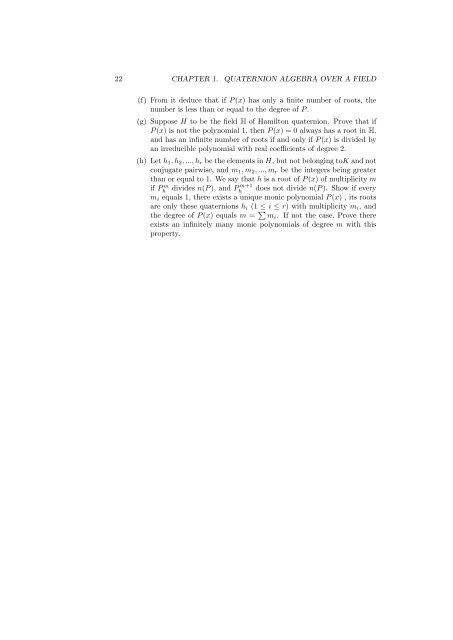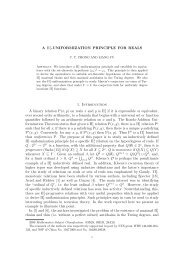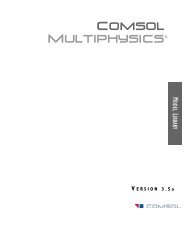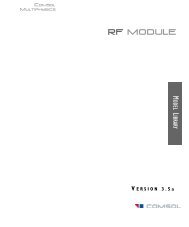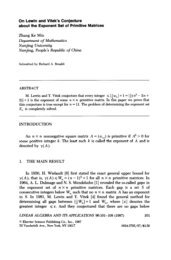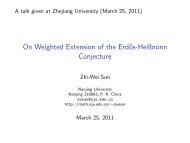The Arithmetic of Quaternion Algebra
The Arithmetic of Quaternion Algebra
The Arithmetic of Quaternion Algebra
You also want an ePaper? Increase the reach of your titles
YUMPU automatically turns print PDFs into web optimized ePapers that Google loves.
22 CHAPTER 1. QUATERNION ALGEBRA OVER A FIELD<br />
(f) From it deduce that if P (x) has only a finite number <strong>of</strong> roots, the<br />
number is less than or equal to the degree <strong>of</strong> P .<br />
(g) Suppose H to be the field H <strong>of</strong> Hamilton quaternion. Prove that if<br />
P (x) is not the polynomial 1, then P (x) = 0 always has a root in H,<br />
and has an infinite number <strong>of</strong> roots if and only if P (x) is divided by<br />
an irreducible polynomial with real coefficients <strong>of</strong> degree 2.<br />
(h) Let h1, h2, ..., hr be the elements in H, but not belonging toK and not<br />
conjugate pairwise, and m1, m2, ..., mr be the integers being greater<br />
than or equal to 1. We say that h is a root <strong>of</strong> P (x) <strong>of</strong> multiplicity m<br />
if P m m+1<br />
h divides n(P ), and Ph does not divide n(P ). Show if every<br />
mi equals 1, there exists a unique monic polynomial P (x) , its roots<br />
are only these quaternions hi (1 ≤ i ≤ r) with multiplicity mi, and<br />
the degree <strong>of</strong> P (x) equals m = � mi. If not the case, Prove there<br />
exists an infinitely many monic polynomials <strong>of</strong> degree m with this<br />
property.


